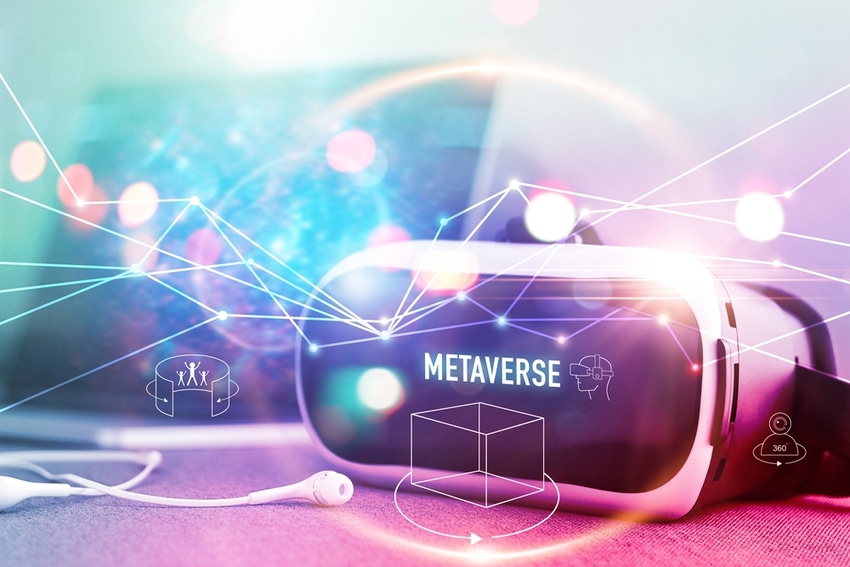Microsoft could face an uphill battle convincing regulators to approve its $68.7 billion acquisition of Activision.
January 19, 2022

Microsoft is betting that its agreement to acquire videogaming giant Activision Blizzard will help punch its ticket to the metaverse. Most experts believe there is tremendous upside in $68.7 billion all-cash deal announced Tuesday, despite key hurdles.
The less certain part of Microsoft’s gamble is whether the company can convince regulators to approve the acquisition. Even if it clears that obstacle, Microsoft will inherit a company under scrutiny for imbedded employee misconduct and sexual harassment.
Microsoft officials expressed confidence that the deal will pass muster with regulators and that it can fix Activision’s troubled culture. Moreover, chairman and CEO Satya Nadella believes Activision will markedly expand Microsoft’s gaming franchise and broaden its metaverse ambitions.
In the rapidly growing gaming business, Activision has 400 million paid monthly subscribers of its content. Analysts expect 2021 revenues will total roughly $8.5 billion when the company reports earnings next month.
Nadella explained why it is so important to Microsoft during an investor briefing Tuesday.

Microsoft’s Satya Nadella
“Today, we face strong global competition from companies that generate more revenue from game distribution than we do from our share of game sales and subscriptions,” he said. “We need more innovation and investment in content creation and fewer constraints on distribution. And together with Activision Blizzard, that’s what we will be able to deliver.”
Activision, combined with Microsoft’s Xbox gaming business, would create the world’s third largest video gaming provider behind Tencent and Sony.
“The first and foremost opportunity in terms of monetization is of course gaming,” Loup Ventures managing partner Gene Munster said.

Loup Ventures’ Gene Munster
While the metaverse is the next wave in gaming, Microsoft sees it carrying over into how people communicate and work.
Entering the Enterprise Metaverse
By virtue of its broad audience, Activision would expand Microsoft’s total addressable market (TAM). It would also expand the groundwork Microsoft has covered in establishing metaverse as the new user experience in computing.
Metaverse is a loosely defined term describing immersive augmented reality experiences where people represent themselves as avatars or digital twins. Nadella described it as “a collection of communities and individual identities anchored in strong content franchises accessible on every device.”
Last year, Nadella previewed Mesh for Teams, an add-on to Microsoft’s collaboration and meeting platform set to appear by June. Mesh seeks to make meeting participants feel more engaged and productive by bringing holographic, mixed-reality capabilities to Teams.
“In the end, the line between the enterprise and consumer metaverses was always going to be fuzzy, and you can’t focus on just one,” Gartner VP and distinguished said Thomas Bittman told ComputerWorld. “Microsoft is now going big on both.”
Regulatory Challenge
Microsoft and Activision appear to have planned for a lengthy regulatory review process in the structure of the deal. The scheduled close date is the end of Microsoft’s fiscal year 2023, roughly 18 months away. After a record year of mergers and acquisitions in 2021, global regulators are looking to rein in the activity.
In July, President Joe Biden signed an executive order seeking to reduce corporate dominance and expand competition. Among other things, the order encouraged U.S. regulators to increase their scrutiny of the IT industry.
Hours after Microsoft announced the Activision deal, the Federal Trade Commission (FTC) and Department of Justice (DOJ) addressed Biden’s order. The agencies jointly held a briefing to announce that they are seeking to modernize merger guidelines in the U.S. The first step is a request for information seeking public input.

FTC’s Lina Khan
FTC chair Lina Khan said global deal making last year rose to $5.8 trillion, the highest on record. Merger approval filings in 2021 were more than double the average filed during the past five years, according to Khan.
“While periodic review of existing guidance is good practice generally, this review of the merger guidelines is especially timely and right,” Khan said. “Evidence suggests that many Americans historically have lost out with the diminished opportunity higher prices lower wages in lagging innovation.”
FTC and DOJ officials said they were not …
… commenting on the Microsoft-Activision announcement. But former FTC member William Kovacic, who served as chairman from 2008-2009, gave his take during a CNBC appearance Wednesday.
“There’s unmistakably a greater determination to look at large transactions, such as the deal announced yesterday, in greater detail,” said Kovacic, now a law professor at George Washington University. “And with a bit more skepticism, large transactions involving tech and other sectors, you’re going to get a closer look.”
Look for Microsoft to argue that combined with Activision it will have larger rivals in the videogame market: Tencent and Sony. Activision CEO Bobby Kotick told CNBC that he doesn’t see the deal thwarting competition.
The videogaming industry is also ripe for consolidation. Last week, game publisher Take-Two announced it plans to acquire Zynga for $12.7 billion.
“One of the motivations that we had for a partnership with Microsoft is the recognition it’s a big market,” Kotick said. “There’s an enormous amount of competition, whether it’s Tencent, who has resources that are extraordinary and a global footprint, or Sony or Facebook, or Amazon or Apple, or Google or Netflix or Disney.”
Activision’s ‘Frat Boy Culture’
A lawsuit filed last summer alleged a “frat boy culture” at Activision where female employees have faced constant sexual harassment. The California’s Department of Fair Employment and Housing agency filed the suit in Los Angeles Superior Court.
According to the lawsuit, which followed a two-year investigation, women accounted for roughly 20% of Activision’s workforce of 10,000-plus employees. Activision discriminated against female employees in terms of assignments, compensation and promotions, did not take steps to thwart harassment, the lawsuit claimed. It also alleged that they also faced retaliation.
Shareholders filed a lawsuit in August. In September, the Security and Exchange Commission (SEC) reportedly subpoenaed Activision employees and executives, including CEO Bobby Kotlick. Activision said it was cooperating with the SEC, as well as the Equal Opportunity Commission (EOC).
In response, Kotlick promised to address the issue in an Oct. 28 letter to employees.
“The guardrails weren’t in place everywhere to ensure that our values were being upheld,” Kotlick stated. “In some cases, people didn’t consistently feel comfortable reporting concerns, or their concerns weren’t always addressed promptly or properly. People were deeply let down and, for that, I am truly sorry.”
Nadella has signaled that Microsoft will have to address the corporate culture at Activision.
“We believe it’s critical for Activision Blizzard to drive forward on its renewed cultural commitments,” he said. “And we also recognize that after the close, we will have significant work to do in order to continue to build a culture where everyone can do their best work.”
Microsoft last week said it hired a law firm to review its sexual harassment and gender discrimination policies and claims. The company will release details of its findings, which will include investigations of founder Bill Gates.
Want to contact the author directly about this story? Have ideas for a follow-up article? Email Jeffrey Schwartz or connect with him on LinkedIn. |
About the Author(s)
You May Also Like


